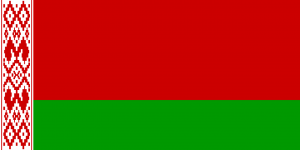Difference between revisions of "Language/Belarusian/Grammar/Nouns"
m (Quick edit) |
m (Quick edit) |
||
| Line 112: | Line 112: | ||
<br><hr>If you have any questions, please ask them in the comments section below.<br>Feel free to edit this wiki page if you think it can be improved. 😎 | <br><hr>If you have any questions, please ask them in the comments section below.<br>Feel free to edit this wiki page if you think it can be improved. 😎 | ||
==Related Lessons== | |||
* [[Language/Belarusian/Grammar/Possession|Possession]] | |||
* [[Language/Belarusian/Grammar/Prepositions|Prepositions]] | |||
* [[Language/Belarusian/Grammar/Negation|Negation]] | |||
* [[Language/Belarusian/Grammar/Adjectives|Adjectives]] | |||
* [[Language/Belarusian/Grammar/Future-Tense|Future Tense]] | |||
* [[Language/Belarusian/Grammar/Questions|Questions]] | |||
* [[Language/Belarusian/Grammar/Adverbs|Adverbs]] | |||
* [[Language/Belarusian/Grammar/Conditional-Mood|Conditional Mood]] | |||
* [[Language/Belarusian/Grammar/Pronouns|Pronouns]] | |||
{{Belarusian-Page-Bottom}} | {{Belarusian-Page-Bottom}} | ||
Revision as of 23:05, 25 February 2023
Hi Belarusian learners! 😊
In today's lesson, we will be discussing the basics of Belarusian nouns. We will cover topics such as gender, number, and case. By the end of this lesson, you will have a better understanding of how to use nouns in Belarusian.
Gender
Nouns in Belarusian can be either masculine, feminine, or neuter. To determine the gender of a noun, you must look at the ending of the word.
Masculine
Masculine nouns typically end in -a, -u, -y, -i, -o, -ě, -ŭ, or -ń.
Examples:
- дзекун (desk)
- бацька (father)
- друг (friend)
Feminine
Feminine nouns typically end in -a, -я, -ь, -и, -ы, -э, -у, or -ю.
Examples:
- мама (mother)
- кніга (book)
- дароўна (gift)
Neuter
Neuter nouns typically end in -o, -e, -ě, -ę, -ė, -į, -ą, or -ų.
Examples:
- месца (place)
- дзеркала (mirror)
- падзем'е (underground)
Number
Nouns in Belarusian can be singular or plural. To form the plural of a noun, you must add the appropriate ending.
Singular
Singular nouns typically end in -a, -u, -y, -i, -o, -ě, -ŭ, -a, -я, -ь, -и, -ы, -э, -у, -o, -e, -ě, -ę, -ė, -į, -ą, or -ų.
Examples:
- дзекун (desk)
- мама (mother)
- месца (place)
Plural
Plural nouns typically end in -ы, -і, -оў, -аў, -яў, -ёў, -у, -ю, -ей, -ёй, -ай, -о́й, -ы́, -і́, -а́, or -я́.
Examples:
- дзекуны (desks)
- мамы (mothers)
- месцы (places)
Case
Nouns in Belarusian can be in one of seven cases. The cases are nominative, genitive, dative, accusative, instrumental, locative, and vocative.
Nominative
The nominative case is used for the subject of a sentence. It is also used for the predicate noun.
Examples:
- Дзекун стаў на сталіцу. (The desk stood on the table.)
- Мама прачытала кнігу. (Mother read the book.)
- Месца было прыкладнае. (The place was convenient.)
Genitive
The genitive case is used to indicate possession.
Examples:
- Дзекун бацькі. (Father's desk.)
- Мамы дароўны. (Mother's gift.)
- Месца друга. (Friend's place.)
Dative
The dative case is used to indicate the indirect object of a sentence.
Examples:
- Я дарую дзекуну бацьку. (I give the desk to father.)
- Я дарую маме дароўну. (I give the gift to mother.)
- Я дарую другу месца. (I give the place to friend.)
Accusative
The accusative case is used to indicate the direct object of a sentence.
Examples:
- Я бачу дзекун. (I see the desk.)
- Я бачу маму. (I see the mother.)
- Я бачу месца. (I see the place.)
Instrumental
The instrumental case is used to indicate the means by which an action is done.
Examples:
- Я пішоў дзекунам. (I went by desk.)
- Я пішоў мамай. (I went by mother.)
- Я пішоў месцам. (I went by place.)
Locative
The locative case is used to indicate the location of an action.
Examples:
- Я сядзю на дзекуне. (I sit on the desk.)
- Я сядзю на маме. (I sit on the mother.)
- Я сядзю на месцы. (I sit on the place.)
Vocative
The vocative case is used to address someone directly.
Examples:
- Дзекун! (Desk!)
- Мама! (Mother!)
- Месца! (Place!)
If you have any questions, please ask them in the comments section below.
Feel free to edit this wiki page if you think it can be improved. 😎
Related Lessons
- Possession
- Prepositions
- Negation
- Adjectives
- Future Tense
- Questions
- Adverbs
- Conditional Mood
- Pronouns
